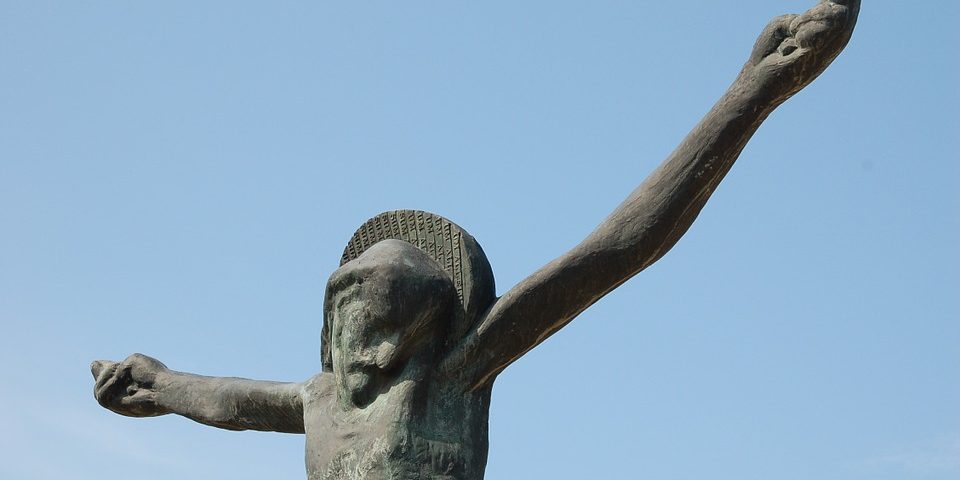“It will lead to your giving testimony,” Jesus said (Lk 21:13).
That would be the fruit, he imagined, of all the hostility, hardship, and suffering Christians bore: when the hatred of the world finally broke decorum, when Christians finally discovered their own Good Friday.
Only then would the followers of Jesus be able to offer a better word of testimony, not from a position of comfort and power but rather from a position of pain and weakness. Only when scourged, only from the cross, only in sacrifice, does our word have any power. That’s the hard thing Jesus seems to be saying, that we can only speak in his name not when we hold power but only when we’ve renounced it, when we’ve given up our possessions and even in principle our lives. That is, only when we’ve taken up the cross, leaving all behind, can we speak the Gospel, bear witness to Christ, with any authenticity at all. That seems to be the unappealing message Jesus offers repeatedly in Luke, that weakness and suffering and dispossession belong necessarily to Christian life, that such things must in fact precede preaching.
Which, of course, is why it’s precisely here that we ignore Christ and distort Christianity, both preachers and people alike. Because we still don’t want to give up our power and possessions. Because although we say we want Christ, we don’t want that.
Thus, we understand and are also challenged. We understand the almost innumerable distortions of Christianity, institutional and individual. From the idiocy of the so-called “prosperity gospel” to churches’ bureaucratic instincts of self-preservation to you and I running as fast as we can from any hardship whatsoever, we understand why Christianity comes across as plainly fake to so many. Because we have indeed been faking it for so long, thinking for too long that we can have our Christianity as well as our power, free from suffering—our foolish fakery of faith.
But, as I said, we’re challenged too. If Christianity which fails to embrace suffering and weakness is a sham, then we know what to do if we’re to remain, or better, finally become authentic Christians. We must examine our power and possessions, our strength too, and ask ourselves what Jesus would ask us to renounce. What would he tell you to sacrifice? Have you ever wondered? Also, have you ever embraced and welcomed suffering and persecution, or have you instead cursed it, returning violence for violence? Jesus would tell us to welcome it as a chance to bear witness to him. But do we really see suffering and persecution as Jesus would have us do? Or do we just not believe in turning the other cheek? You see the challenge?
This, I understand, is profoundly difficult. It’s not the comfortable religion peddled so much in so many places. But it is real Christianity. It is what Jesus teaches. And so, the question is not whether we can have Christianity without these difficult truths (we cannot), but whether we are willing to embrace suffering and the crosses prepared for us. So that we may finally preach Jesus to the world.










